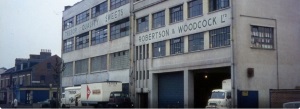Trebor Sweets
Trebor was founded on 4 January 1907 in south west Essex by W.B. Woodcock, Thomas Henry King, Robert Robertson, and Sydney Herbert Marks from Leytonstone and was located on Katherine Road (at Shaftesbury Road) in Forest Gate, London E7. The name Trebor, which is “Robert” spelled backwards, was registered as a trademark four days after the end of World War I.
In 1939, a factory on a five-acre site was opened on Brimington Road in Chesterfield, on the site of a former brewery next to Chesterfield railway station; the factory in Chesterfield closed in 2005. The Trebor Bassett national distribution centre was off the A6175 in Holmewood, North East Derbyshire, off the M1 Heath Interchange; this is now the NDC of Tangerine Confectionery.
On 18 April 1944, the factory in Katherine Road was hit by a German bomb. It bought Moffat toffee in 1959, and Jamesons Chocolates in 1960.
By the end of the 1960s, the company was exporting to over fifty countries; 20% of its output from its three factories was exported. The largest export market was the United States. Up to 1966, it had doubled its exports in four years. In the 1967 Birthday Honours, the Chairman John Marks (son of the founder, and who died in December 1980) was appointed a CBE for the company's exports; he was president from 1956 to 1959 of the Cocoa, Chocolate and Confectionery Alliance.
By the end of the 1960s, it was the fourth largest
confectionery manufacturing group in the United Kingdom;
its main competitors were Rowntree Mackintosh
Confectionery and Cadbury. Early advertising for the
Trebor Mints brand used the famous jingle "Trebor mints
are a minty bit stronger".
In January 1969, it bought the confectionery interests
of Clarnico. In 1970, John Graham Marks (29 September 1930 – 31 October 2012), the grandson of the company's founder, became chairman of the company, and owned the company with his brother Ian; the company was family run and also had a Christian paternalistic ethos. In 1981, the company discontinued night shifts, as it believed that night shifts were possibly damaging to family life.
In December 1985, it bought Maynards for £7.5m. In the middle of the 1980s, the company was the British market leader in branded mints and boiled sweets.
Acquisition by Cadbury
On Thursday 14 September 1989, Cadbury Schweppes bought the company for £147m. The company was run as a subsidiary company of Cadbury. At the time, the company employed around 3,000.
From 1 March 1990, the company was known as Trebor Bassett, a division of Cadbury. Production would eventually move to North Sheffield, off the A61.
-Wikipedia.
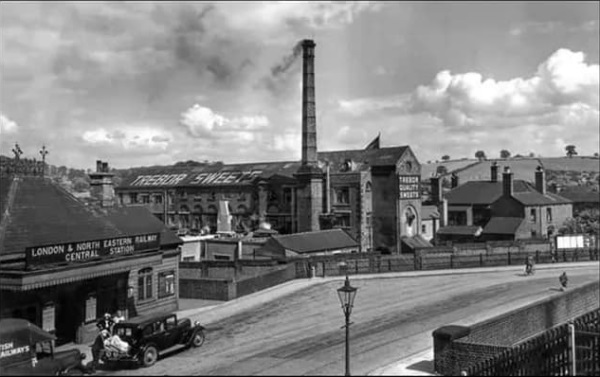
Trebor Sweet Company - 1950
Thanks to Jon Sambrook
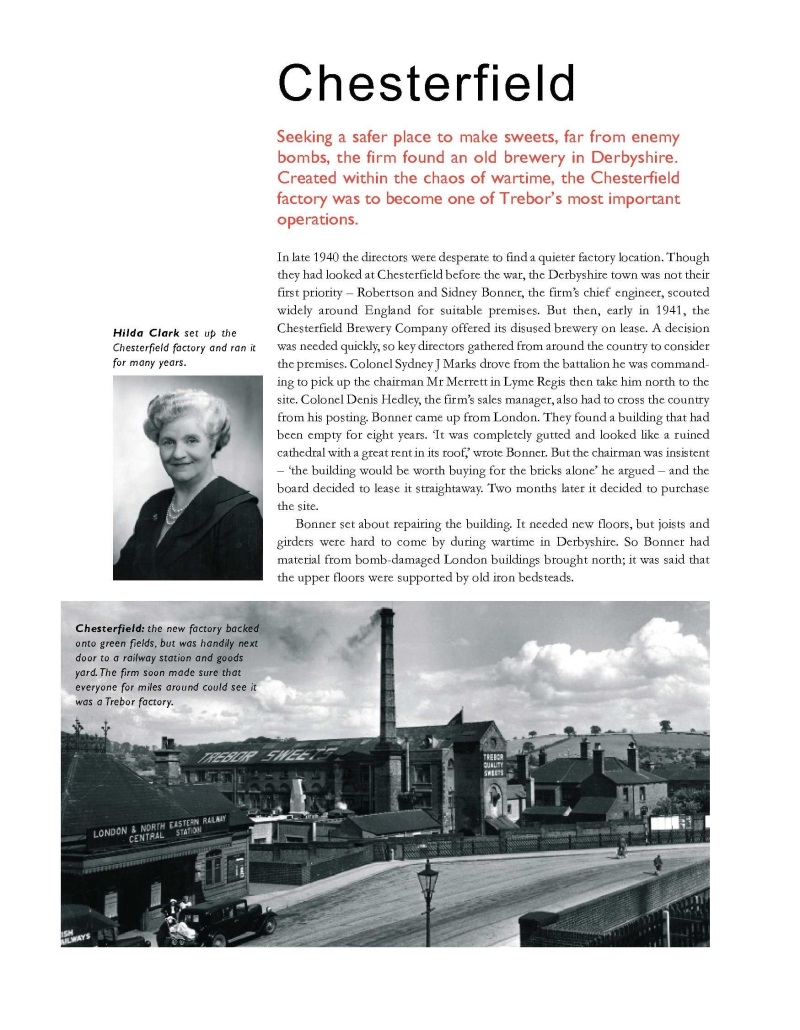
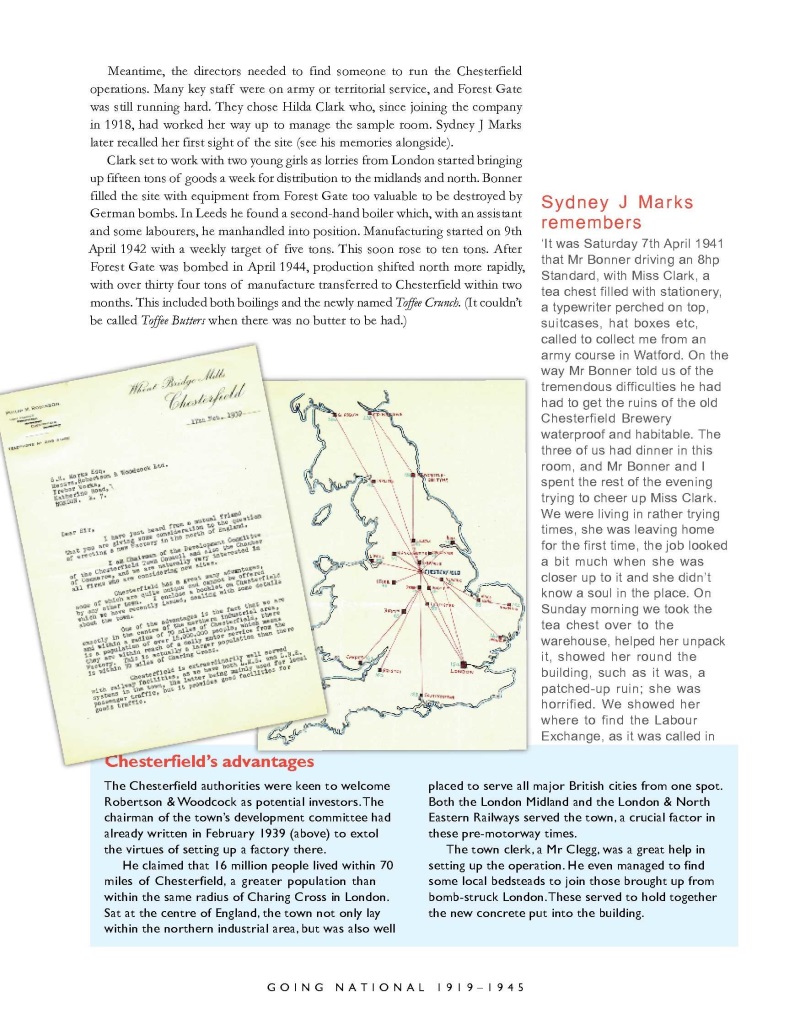
Extract from The Trebor Story, reprinted with permission
The Trebor Story: www.thetreborstory.com
.jpg)
The Trebor Sweets Factory and Chesterfield Central Railway Station
Thanks to Britain from above
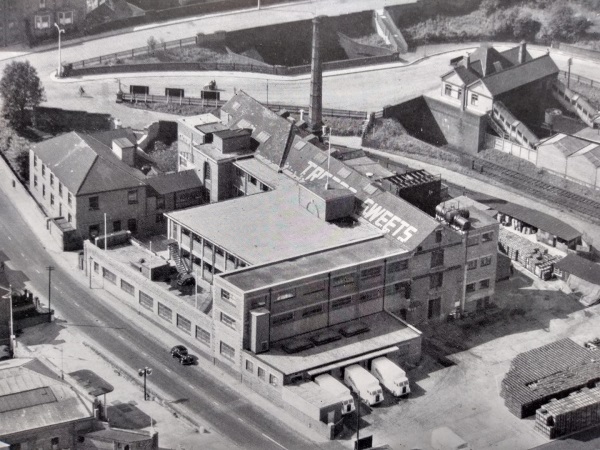
Thanks to John Middleton
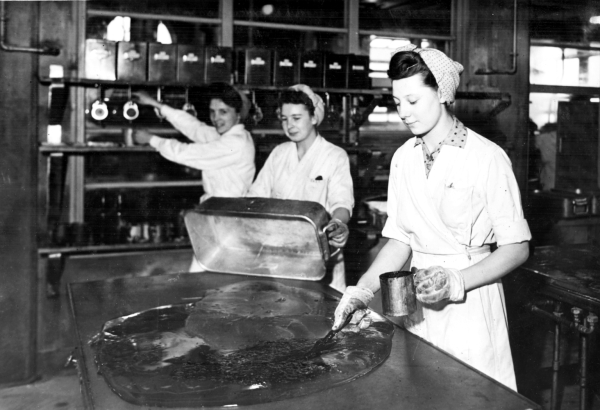
Chest Trebor Factory Colouring & Flavouring.
COLOURING AND FLAVOURING well before the 1950s the laboratory had taken control of production, with chemists prescribing the colours and flavours to be added, as here, on the slab.
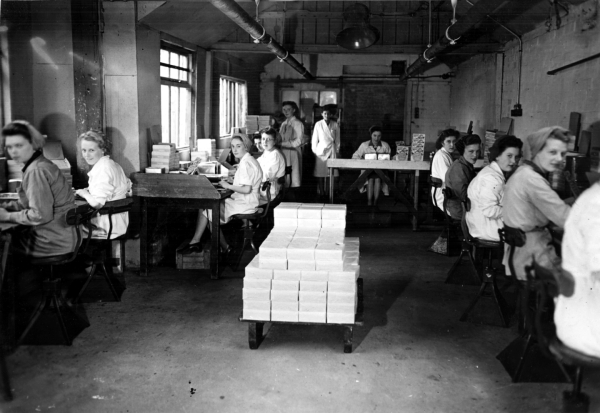
Chest Trebor Factory Hand Wrapping
There were machines to wrap most count lines, specialty sweets and boxed assortments demanded wrapping by hand.
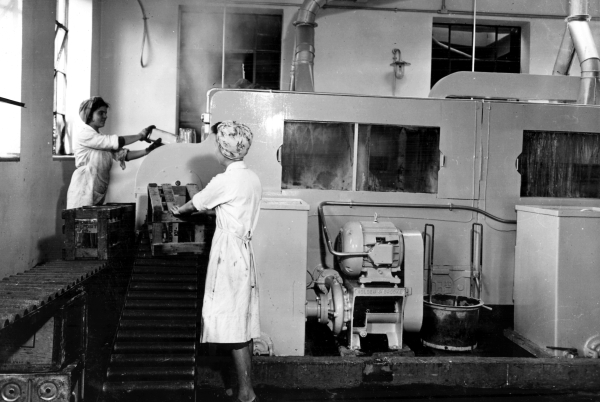
Chest Trebor Factory Jar Washer
Washing jars: some days the firm might have 10,000 glass jars to wash.
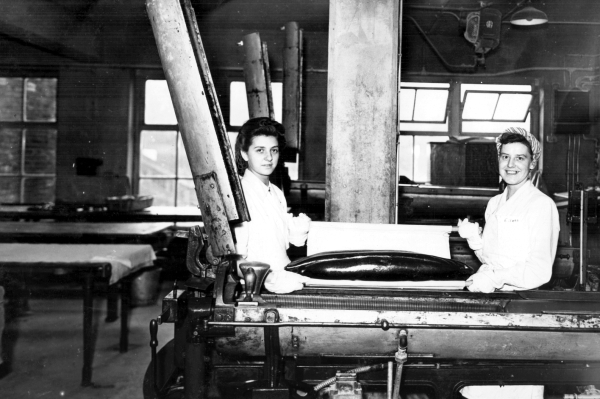
Chest Trebor Factory Loading Batch Roller
Once a batch had been worked by hand to mix in the colour and flavouring, it was time to roll it out to consistent width.
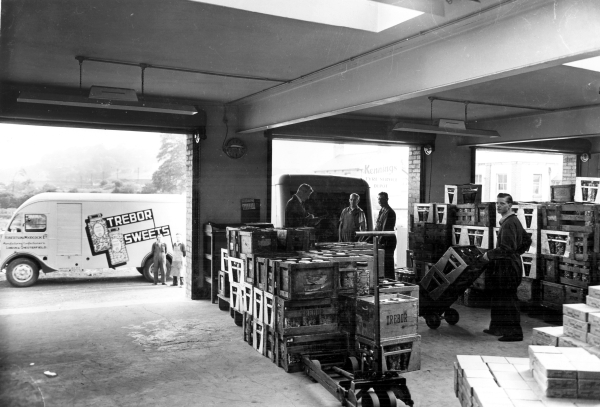
Chest Trebor Factory Loading Bay
Sset at the heart of England, Chesterfield was well placed for sending out liveried vans across the nation.
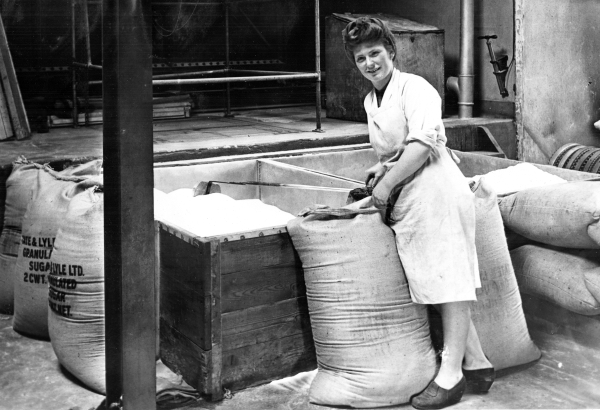
Chest Trebor Factory Sugar
Brenda Ashley empties UNLOADING SUGAR (above): Brenda Ashley empties a huge bag of sugar. Aged 18 she joined the Chesterfield factory when it opened during the war.43 years of continuous service later, she had a big retirement party in 1986.
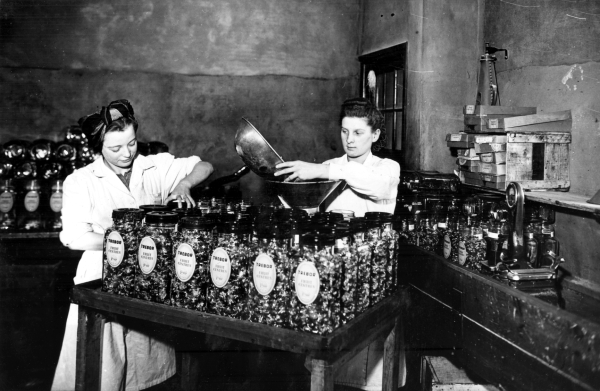
Chest Trebor Factory Weighing Up
Though count lines of individual products were increasing, most sweets were still sold by weight.
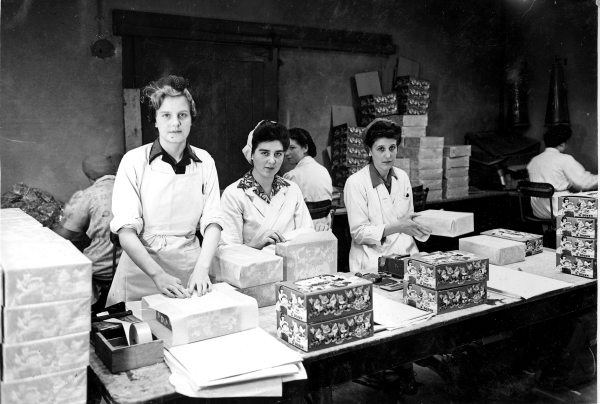
Chesterfield Trebor Factory Finishing Off
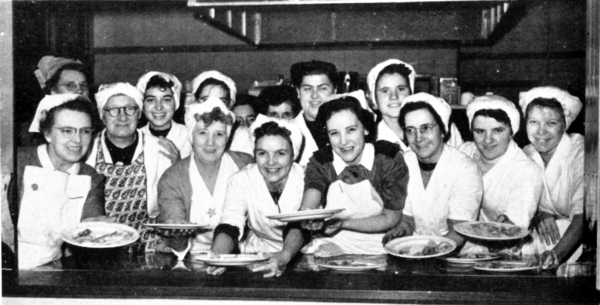
Chest Trebor Christmas - 1955
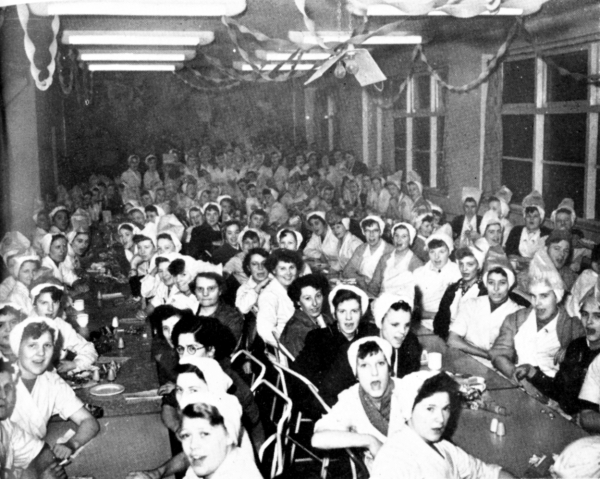
Chesterfield Trebor Christmas Party - 1955.
The works canteen echoed to the sound of workers belting out traditional carols.
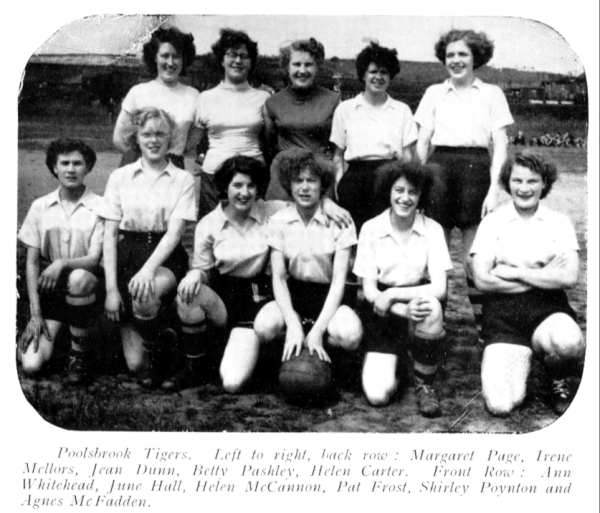
Chest Trebor Womens Football - 1955
This women’s football team 'Poulsbrrok Tigers' was active in Chesterfield factory’s social club, playing to raise money for local retirement homes. For many working class women of the time, there were few opportunities to play sport outside what their employer might offer.
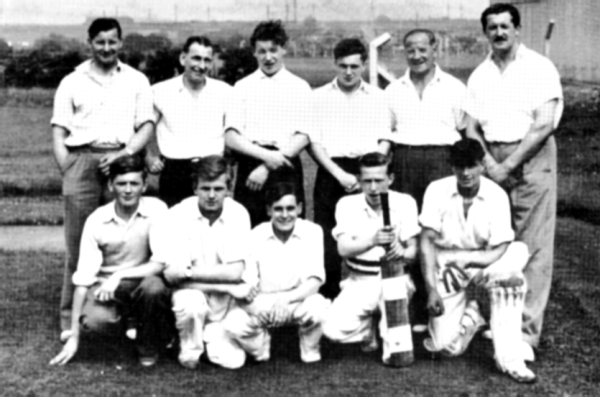
Chest Trebor Cricket Team - 1956
The first outing of this amateur eleven on 25th June 1956 saw them dismissed for 30 runs by a local team, one of whom ‘had appeared for the county seconds.’ But they improved, beating another local team on 21st July with five wickets to spare.
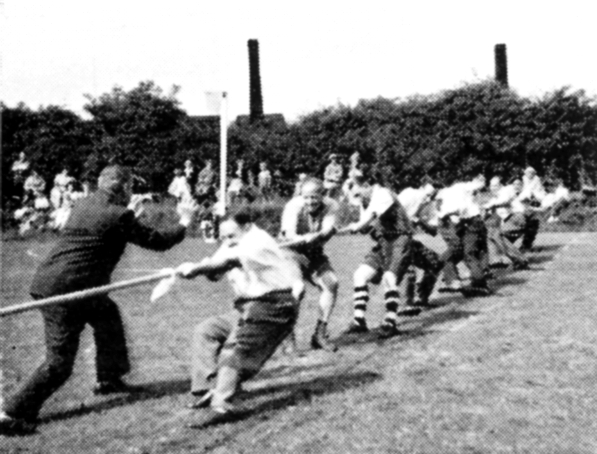
Sports Day - 1959:
Sydney Marks encourages the foremen in their tug of war against the warehousemen. The foremen won with two straight pulls.
Extracts from The Trebor Story, reprinted with permission
The Trebor Story: www.thetreborstory.com
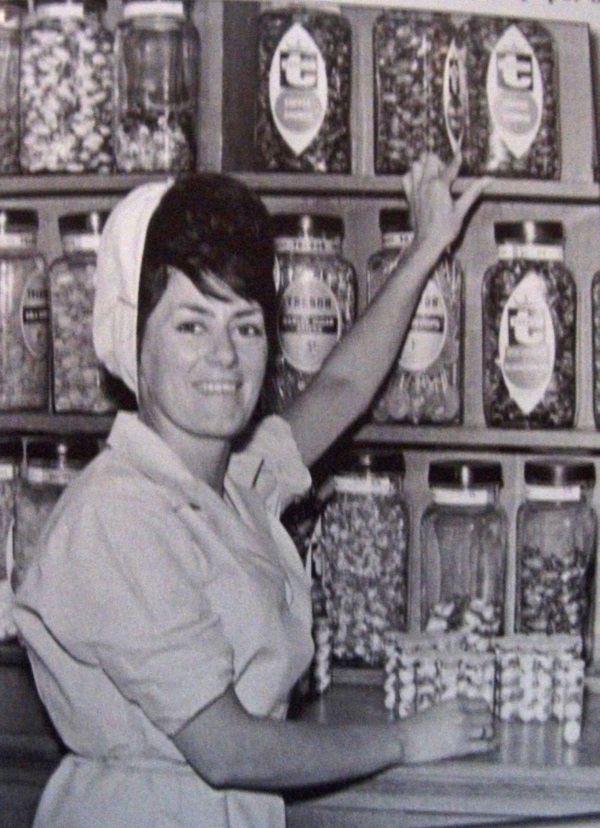
Trebor Girl. Early to mid sixties.
Thanks to Neil Botham
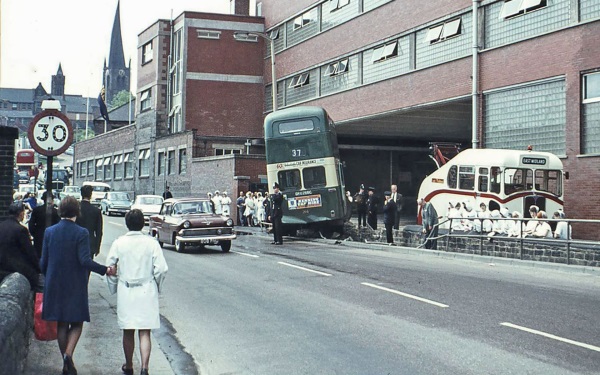
Bus crash outside Trebor Factory - 1967
Thanks to Paul Greenroad
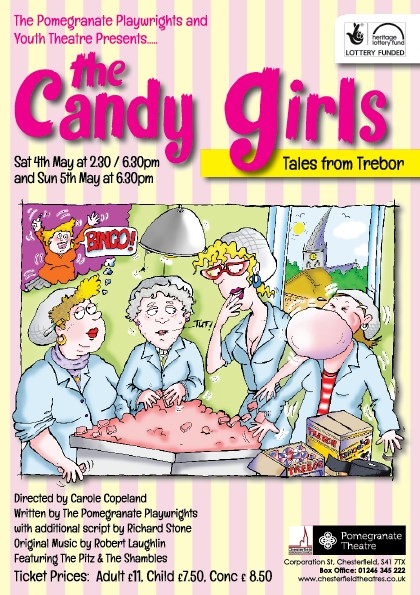
Community musical put on in Chesterfield about working at the firm. - 2003
Thanks to The Trebor Story
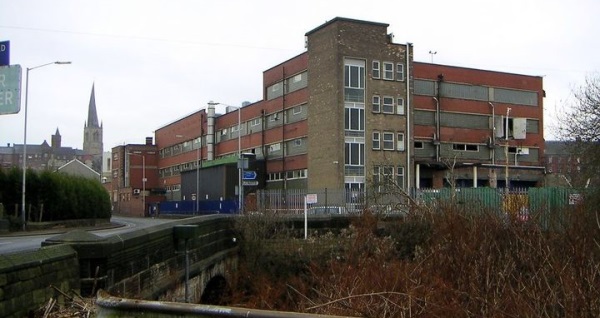
Trebor Works 2006.
Thanks to Brian Crossland

Trebor Works Demolition 2006.
Thanks to Brian Crossland
